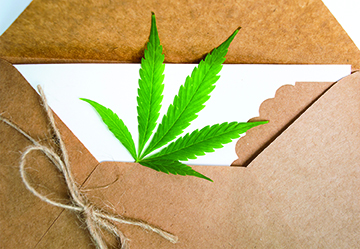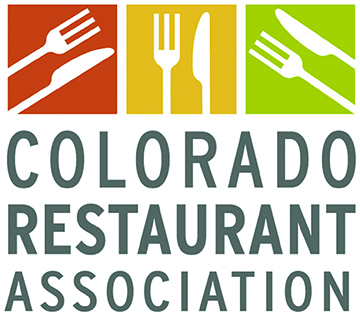“From funerals come flowers.” Ancient Proverb
As Denver accounts for the fallout of the past year and pieces itself back together, some residents are reveling in a set of unforeseen outcomes. Prior to the pandemic, pot smokers could not get their weed delivered to their homes and drinkers could not take their alcoholic beverages with them from an establishment.
This is no longer the case. For the sedentary smoker and the ambulatory imbiber, there are new circumstances that can either enable your sanctuary or unleash your adventure — depending on your vice and/or what sort of a day you’re having. New bills affecting how marijuana and alcohol are sold and consumed have recently been approved with overwhelming support in a sweeping effort to bolster the economy.
Another 2020 Shocker

Now, weed smokers need only get up off the couch long enough to answer the door in order to legally replenish their supply.
In an unprecedented move, the Denver Department of Excises and Licenses submitted proposals which were actually designed to create commerce rather than hinder it. Anyone who has dealt with this hissing bureaucracy of red tape and miscommunication knows this is not normally the case. Typically, anyone looking to obtain a business and/or liquor license, noise permit, food retail license, or any of the other 73 licenses the office issues knows this can be a daunting task involving circus levels of hoop jumping and presidential degrees of lip service. The proposals cruised through City Council uncontested and passed through the legislative process unanimously. In a recent Westword article, Marijuana Industry Group director Truman Bradley is quoted as saying, “You know cannabis has arrived when marijuana bills pass through Denver City Council with literally no comment. That never would have happened in the old days.”
Wait, What?
In another surprisingly progressive development, the bills contain social equity provisions regarding new marijuana business licenses. The law now states that all new licenses granted between now and 2027 (except testing laboratory licenses) are required to be given to individuals who have been previously convicted of or at least arrested for a drug offense or have endured civil asset forfeiture because of a drug offense. Qualifications also extend to family members of those who have suffered from the above circumstances and those who reside in an area of high crime or low economic opportunity. This is great news for the little people who want a taste of Denver’s near one billion dollar a year cannabis industry. Whether granting marijuana business licenses to folks with the aforementioned qualifications is a great idea remains to be seen.
Make That To Go, Please

It is widely agreed by hospitality professionals that making takeout sales of alcohol legal saved many establishments in 2020/21.
Meanwhile, House Bill 21-1027 recently passed through the house and Senate chambers and is headed to Governor Polis’ desk to be signed into law. The law allows restaurants and bars to sell alcoholic beverages, to go, between the hours of 7 a.m. and midnight. This extends the currently similar circumstances already in place by another four years until July 1, 2025. Per transaction, bars and restaurants can now sell takeout orders of either two 750 mL bottles of wine, one liter of distilled spirits or one 12-pack of beer.
As most folks already know, last year Polis signed a bill into law once in March and again in July allowing businesses to sell alcohol via delivery and to go as a way of creating revenue during the pandemic. This maneuver allowed many businesses that would have otherwise had to close forever to make it through the pandemic.
Recently, in support of this bill, the Colorado Restaurant Association released a statement saying, “This legislation is critical to the recovery of Colorado restaurants, 93% of which have relied on alcohol to go to supplement lost revenue in the wake of the COVID-19 pandemic. In a poll conducted last year, 85% of Coloradans over the age of 21 years were in favor of this bill.” Association President and CEO Sonia Riggs also states, “Passing this measure is a political no-brainer. Being able to sell alcohol beverages for takeout and delivery has been a lifeline for the Colorado restaurant industry, which lost $3 billion in revenue in 2020 alone. Allowing alcohol to go can play a big role in alleviating the gravest economic crisis the restaurant industry has faced in living memory.”
Further, according to exact wording in the bill, the new law “allows cities to create outdoor communal dining areas where two or more restaurants are allowed to attach their liquor licenses and then sell and serve alcohol in that outdoor dining area.”
Way To Go, Dude
With a name like Jeff Bridges (in reference to the actor’s character in The Big Lebowski) it’s no wonder the Democratic Senator of the same name who first proposed this bill would be championing alcohol sales for folks too aloof to pour their own drinks. In a recent CBSN interview, Bridges explains that since lawmakers shut down bars and restaurants during the pandemic because they felt they had to save lives, it is now only fair that they do something to help businesses recover. “We shut them down and we did that to keep people safe. We had to do it. It was the right thing to do,” Bridges says. “But because we did that to these bars and restaurants, I think we have an obligation to do whatever we can to help them come out the other end.”
In an era where many politicians don’t seem to give a rip about the little guy, at least there are some who still seem to care. At a time when any piece of good news is cause for celebration — anyone working in hospitality can definitely say “cheers” to that.


